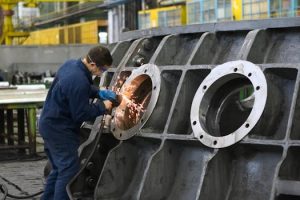Big Data’s Role: Predicting Consumer Preferences for Future Models
Technology is constantly evolving and reshaping industries, and the automotive industry is no exception. With the rise of Big Data, car manufacturers are now able to gather and analyze massive amounts of data from consumers in order to make informed decisions about future models. By tapping into consumer preferences and behaviors, Big Data allows companies to accurately predict the features and designs that will appeal to consumers, ultimately shaping the future of the automotive industry. But what exactly is Big Data and how does it play a role in predicting consumer preferences for future models? Let’s explore this powerful tool and its impact on the automotive industry.
The Rise of Big Data
Big Data refers to the vast amount of data generated by various sources, including social media posts, online transactions, and sensor data from devices. This data is then collected, stored, and analyzed by companies to uncover valuable insights and patterns. With the advancement of technology, companies are now able to collect and analyze even more data, leading to better decision-making processes.
In the automotive industry, companies are utilizing Big Data to gain a deeper understanding of their target audience. By analyzing customer data, companies can develop more personalized marketing strategies and make data-driven decisions about future models. This not only helps companies save time and money, but also leads to higher customer satisfaction and brand loyalty.
Consumer Preferences: Key to Success
Consumer preferences are constantly changing and it can be challenging for car manufacturers to keep up. Some features that were once popular may no longer appeal to consumers, while others may see a sudden surge in demand. This is where Big Data comes into play. By gathering and analyzing data from various sources, companies can gain valuable insights into consumer preferences and predict future trends. This allows car manufacturers to stay ahead of the game and cater to the evolving needs of consumers.
Technology Features
In the past, car manufacturers would introduce new features based on assumptions and market research. However, these methods were often inaccurate and led to products that did not meet consumer expectations. With Big Data, companies can eliminate this guesswork and focus on what consumers actually want. By analyzing data from social media, online forums, and customer surveys, companies can identify which technology features are most in-demand and incorporate them into their future models.
Design and Aesthetics
When it comes to purchasing a new car, the design and aesthetics are often just as important as performance and technology features. Here again, Big Data plays a crucial role in predicting consumer preferences. By analyzing data from online searches, social media, and customer reviews, car manufacturers can gain insights into which designs and styles are most popular among different demographics. This allows them to create models that will appeal to a wider audience and increase sales.
The Future of the Automotive Industry
With the help of Big Data, the automotive industry is moving towards a more customer-centric approach. By gathering and analyzing data from multiple sources, car manufacturers can understand the needs and preferences of their target audience and make informed decisions about future models. This not only allows companies to stay competitive in a constantly changing market but also creates a better overall experience for consumers.
In addition, Big Data is also fueling the development of autonomous or self-driving cars. As these cars rely heavily on data from sensors and cameras, companies are utilizing Big Data to improve their safety and functionality. With the continued advancement of Big Data technology, we can expect to see more innovative and advanced vehicles in the future.
In Conclusion
The rise of Big Data has brought significant changes to the automotive industry, particularly in the way companies gather and analyze consumer data. By leveraging this data, car manufacturers can predict consumer preferences for future models, ultimately shaping the direction of the industry. As technology continues to evolve, we can expect to see even more innovative uses of Big Data in the automotive industry, leading to a better experience for both companies and consumers.






